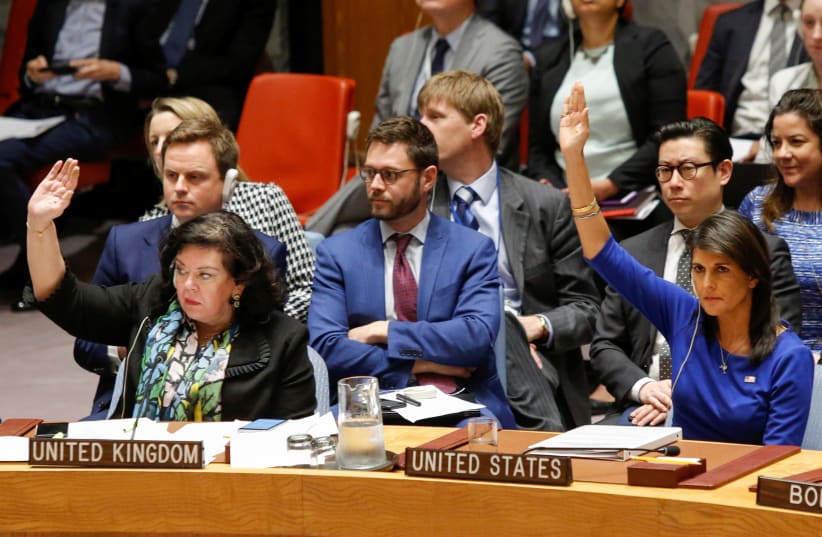A Related Video You May Like:
A second priority, Haley said, was the complete defeat of Islamic State forces that once held territory in Syria.“Then, thirdly, we want to make sure that the influence of Iran doesn’t take over the area,” she said on CBS’s Face the Nation. “They continue to cause problems throughout the region, and we want to make sure that there is a hold.”The allied strike on Assad’s chemical-weapons infrastructure “set their program back years,” Haley said. She ruled out direct US talks with Assad over ending the conflict because of his “brutality” in targeting innocents throughout the course of the war.Haley said the operation was not intended to overthrow the embattled dictator or “start a new war” in a country now seven years into a bloody conflict among forces loyal to Assad, opposition groups and terrorist organizations. It was meant to send a message that “the president is watching,” she said, adding that Assad “now dictates his own life.”REGIONAL POWERS responded to the strike with a collective shrug, and even the Pentagon acknowledged the attack would not necessarily prevent Assad from continuing to deploy chemical weapons.Haley acknowledged regional concerns in her interviews and said, “We all know our work in Syria is not done.”Saturday morning’s precision strike volleyed more than 100 missiles at three targets that US officials said were critical to Assad’s chemical-weapons program, including a research and development center, processing facilities and storage facilities.“This was not muscle flexing,” Haley told CBS’s Margaret Brennan. “We set their chemical-weapons program back years.”Intelligence Minister Israel Katz, meanwhile, denied in a Kan Bet interview that Assad’s Russian allies had passed on a message to Israel that as a result of the American-led attack, Russia would take action to limit Israel’s movement over Syrian airspace.Russia would be making a mistake if it supplied Syria with S-300 surface-to-air missile systems, he said.Israel’s position on this is well known to the Russians, Katz said, and was discussed with Putin for years by former prime ministers Ariel Sharon and Ehud Olmert, and then again by Netanyahu, in the context of preventing Moscow from selling these advanced air-defense systems to Iran. Russia eventually did sell Iran the weapons system, he said, but only after the Iranian nuclear deal was signed in 2015.Putin understands very well the significance of providing those weapons systems and “challenging Israel,” Katz said. “He understands very clearly that for Israel the most important thing is that it is determined to act in Syria, and I think that Russia does not have the right to prevent Israel from defending itself against countries and organizations that are working against the existence of the State of Israel.”
US priority is to ensure Iran does not ‘take over’ Syria, Haley says
Haley acknowledged regional concerns and said, “We all know our work in Syria is not done.”
